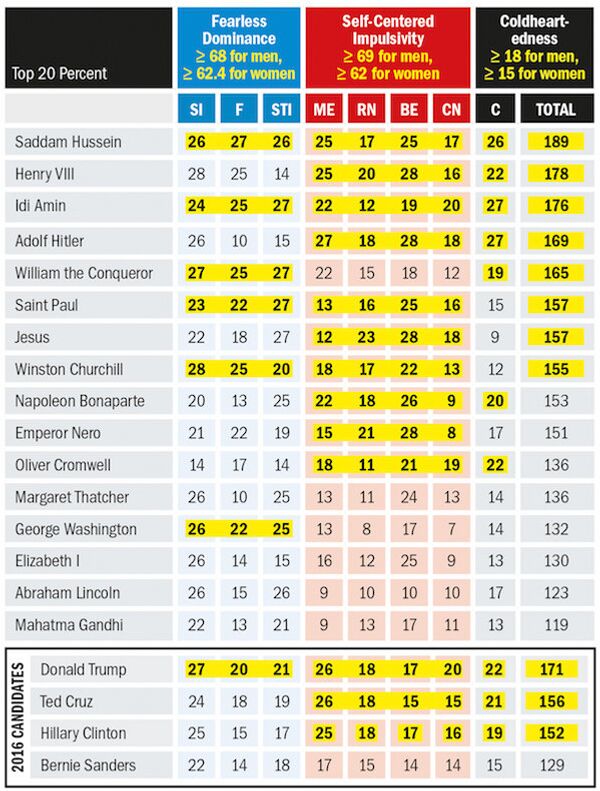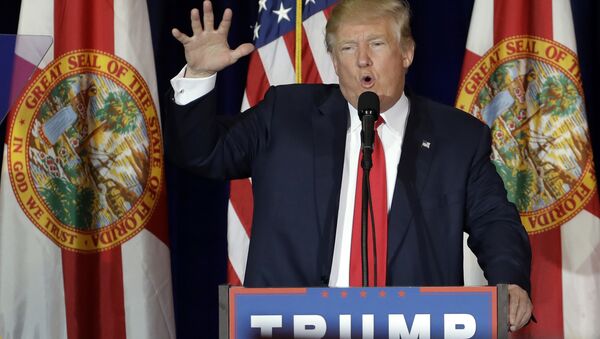Ever since Trump's presidential campaign began, US psychiatrists have publicly speculated that the mogul turned politician is bedeviled by mental health issues, ranging from narcissistic personality disorder to psychopathy. These suggestions have been enthusiastically received by the mainstream media, and the US political class, whose own armchair pundits used these ostensibly professional diagnoses to bolster their own armchair analyses.
Narcissistic personality disorder. Trump doesn't just have it, he defines it. #trumpdiagnosis https://t.co/2WegZrrlJ7
— Jeffrey Flier (@jflier) July 30, 2016
Such was the crescendo of conjecture on the campaign trail, the APA was moved to call on its members to refrain from labeling Trump as mentally impaired in August 2016. However, this caution has seemingly done little to quell the accusations, and the APA has now again warned its members to cease their theorizing, on the basis doing so is both "unethical" and "irresponsible."
From @sciam: Psychiatrists Debate Weighing in on Trump's Mental Health https://t.co/25BKSKNuSs
— American Psychiatric (@APAPsychiatric) February 15, 2017
The APA's stance is echoed by Professor Peter Kinderman, President of the British Psychological Society. He believes Trump should be judged, and condemned, as any other politician would be — "on political decisions."
"Attempting to use a diagnostic approach to understand and confront President Trump is wrong on many levels. I am skeptical of the validity of psychiatric diagnosis per se, and I condemn arms-length celebrity pseudo-diagnosis. There is nothing contemptible about problems that lead to the use of diagnostic labels in our work in mental health," Professor Kinderman told Sputnik.
Psychiatrists who've spoken out about Trump's mental health (or lack thereof) have been quick to defend their actions on the basis they have a professional duty to speak out about the risk of a mentally ill individual occupying the highest office in the world. Some have even formed a political action group, Citizen Therapists Against Trumpism — in the group's manifesto, they state "we are alarmed by the rise of the ideology of Trumpism, which we see as a threat to the well-being of the people we care for and to American democracy itself."
@DeptVetAffiars Mental health professionals (only), join 22,000 colleagues. Sign: Remove Trump he is mentally ill https://t.co/w5RkPE961L
— John Gartner, Ph.D. (@johndgartner) February 11, 2017
However, psychiatric critics of Trump would do well to investigate the Goldwater Rule, and its legal implications. The Goldwater Rule is the informal name given to Section 7.3 of the APA code of ethics, which states it's unethical for psychiatrists to offer a professional opinion about public figures they have not examined in person, and/or obtained consent from.
It derives from a 1964 libel suit brought by then-Republican Presidential candidate Barry Goldwater, in response to an article in Fact magazine. The title published an article, "1,189 Psychiatrists Say Goldwater is Psychologically Unfit to be President!" based on a poll it had conducted. Goldwater sued, and won US$75,000 (approximately US$579,000 in 2017) in damages.

It's not merely in the US that psychiatrists have detected personality disorders in the US president.
In the UK, Oxford Professor Kevin Dutton conducted a study which, he alleges, found Trump scored higher than Adolf Hitler and Idi Amin on the psychopathy scale.


